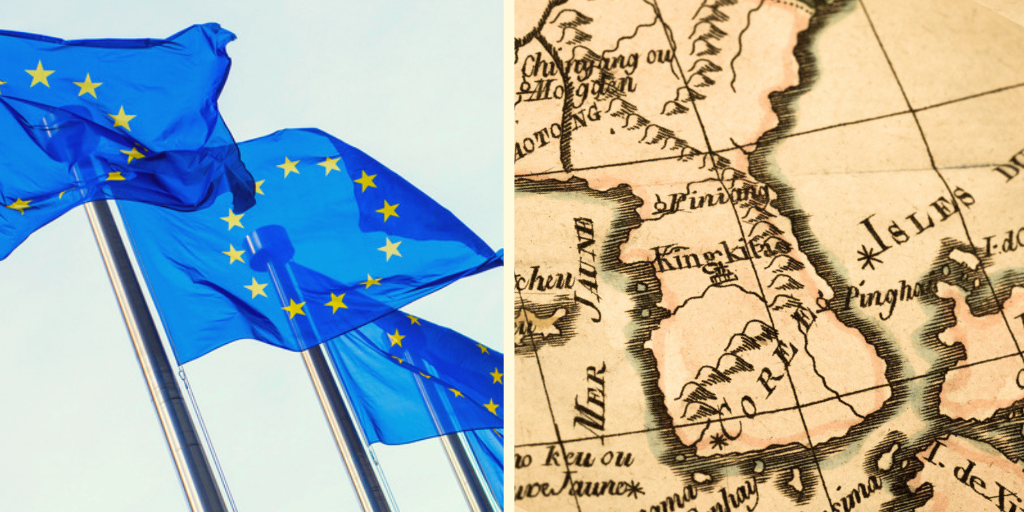The European Union in Crisis: What Challenges Lie ahead and Why It Matters for Korea

The EU is currently undergoing serious challenges from inside such as Brexit and strengthening Euroscepticism, rising populism and changing political geography, anti-immigration moods as well as retarded economic recovery.

These difficulties are further compounded by global uncertainties, strengthening protectionism and rising tensions between the United States and China. Korea has been severely affected by uncertainties and risks from Europe and the EU as well as those from the global economy. This volume of research is designed to conduct research that will hopefully illuminate what kind of difficulties the EU is now facing and what implications we can draw for Korea.
This book has several features. Firstly, it is a collaborative work by both experts in Europe on each of the issues and those from the Korea Institute for International Economic Policy (KIEP). The authors have made sincere efforts to include all possible contemporary issues observed in Europe and their important meaning to Europe and the world from the experts’ viewpoint.
Secondly, it offers an opportunity to think over the implications that contemporary European challenges provide to Korea, which, the editors believe, could arouse interest in Korea and make contributions to Korean Studies in Europe.
Thirdly, it focuses on the EU’s external relations with the US, China and Korea on top of its challenges, which reflect the changing atmosphere of its relations with the two giants and Korea.
Contents
Chapter 1 | Introduction The European Union under Stress: Why It Matters for South Korea
KIM Heungchong (KIEP) and Françoise B. NICOLAS (Ifri)
Chapter 2 | Brexit: the Knowns Amongst the Unknowns ― For the UK, the EU and Third Countries, notably South Korea
Elvire FABRY (Jacques Delors Institute)
Chapter 3 | The Rise of Populism in the EU and Changes in Political Geography
Matthew J. GOODWIN (Kent University)
Chapter 4 | Whither the Franco-German Motor? Overcoming Disputes and Reaching Compromises
Claire DEMESMAY (DGAP) and Barbara KUNZ (Ifri)
Chapter 5 | The EU and the Rise of US Protectionism
Iana DREYER (Borderlex)
Chapter 6 | China and the EU: Main Economic Issues in Trade and Investment
Bernadette ANDREOSSO-O’CALLAGHAN (University of Limerick and Ruhr University Bochum)
Chapter 7 | Changing Landscape of Korea’s Economic Relations with Europe
Françoise B. NICOLAS (Ifri)
Chapter 8 | The Future of the EU and its Implications to Korea
KIM Heungchong (KIEP) and LEE Hyun Jean (KIEP)
KIEP - Korea Institute for International Economic Policy www.kiep.go.kr

Available in:
Regions and themes
ISBN / ISSN
Share
Download the full analysis
This page contains only a summary of our work. If you would like to have access to all the information from our research on the subject, you can download the full version in PDF format.
The European Union in Crisis: What Challenges Lie ahead and Why It Matters for Korea
Related centers and programs
Discover our other research centers and programsFind out more
Discover all our analyses
Opening up the G7 to South Korea to Address Contemporary Global Challenges
The G7’s global influence has diminished as powers like China reshape international governance through initiatives such as BRICS and the Shanghai Cooperation Organisation (SCO). With the G7 now representing just 10 per cent of the world’s population and 28 per cent of global GDP, its relevance is increasingly questioned.
Expanding SPDMM as a pivotal institution in the Pacific – A French perspective
The South Pacific Defence Ministers’ Meeting (SPDMM) is the only forum that brings together defense ministers from the wider South Pacific — including Chile, which is hosting it for the first time. This heterogeneous group of countries with varying resources, capacities, and interests — Australia, Chile, Fiji, France, New Zealand, Papua New Guinea (PNG), and Tonga — are united by their shared determination to strengthen cooperation on maritime security and humanitarian assistance and disaster relief (HADR) activities.
EU’s Derisking From China: A Daunting Task
With economic security as a major concern, the EU has recently turned to “derisking” from China. The EU strategy entails reducing critical dependencies and vulnerabilities, including in EU supply chains, and diversifying where necessary, while recognizing the importance and need to maintain open channels of communication.
Sri Lanka’s NPP Government. From System Change to Structural Compliance
In September 2024, a relative outsider to Sri Lanka’s two-party-dominated political system, Anura Kumara Dissanayake, won the presidential elections. The anti-establishment, populist movement he represented, the National People’s Power (NPP), went on to receive an overwhelming mandate in the November 2024 general elections, winning 159 seats in a 225-member parliament.











